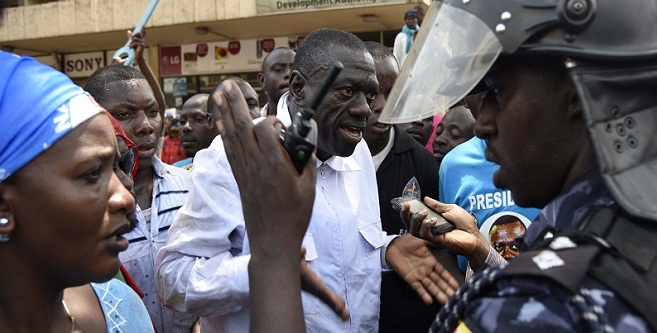
Why it is sad that Bobi Wine has moved to Besigye’s dangerous position of permanent protester
THE LAST WORD | ANDREW M. MWENDA | Last week former presidential candidate, Robert Kyagulanyi aka Bobi Wine, pulled out of the Supreme Court case in which he had alleged he was cheated in the January 14 presidential election.
He claimed the courts of law cannot give him justice and he was taking the case to the court of public opinion. This meant organising street protests.
Like Kizza Besigye before him, Bobi Wine seems to have lost faith in the electoral and judicial process. His new call suggests he wants to change government by ultra constitutional means. It is a strategy that will lead him on Besigye’s long trodden path of failure and frustration.
In many ways, Bobi Wine’s actions, like those of Besigye before him, reflect the dilemma Uganda’s opposition has faced since President Yoweri Museveni’s government opened up political space for electoral competition in 1996.
Museveni came to power by military means. But rather than rule militarily, he chose to rule politically. Hence he put in place a constitution-making process that ushered in electoral competition. Yet the aim of these elections was not to ensure genuine competition for power but to legitimise Museveni’s power.
Because of the role he played in the armed struggle, Museveni enjoys effective personal control over the core institutions of the state. This gives him the ability to manipulate the electoral process to his favour. The opposition knows this even before they participate in the elections. Their dilemma has always been this: should they participate in a flawed electoral process? If they do, it would give them an opportunity to rally the masses around key grievances but at the price of legitimising Museveni’s “election.” However, if they boycott the elections entirely, they would lose a chance to make their voices heard and thus sink into political oblivion.
I sometimes sympathise with the opposition on this issue. They are caught in a Catch 22 situation with complicated tradeoffs wrought with contradictions and risks. However, I initially thought the opposition would see this and participate knowing the benefits exceeded the costs.
Museveni is transient. I felt they would see participation in elections as a way to build themselves as a viable alternative by highlighting key deficits of the Museveni administration. Slowly they could build capacity so that when Museveni is gone, they can have a real chance of gaining power.
But with time, I noticed that the opposition, especially the most effective one led by Besigye, lost this insight. They began to see elections purely as a means of winning power immediately not of building an alternative policy platform. Power became an end in itself, not a means to an end. When they could not gain it, and knowing the electoral process was flawed, they concluded that elections are meaningless.
The post The Besigyesisation of Bobi Wine appeared first on The Independent Uganda:.
from The Independent Uganda: https://ift.tt/2OQcNIC
0 Comments